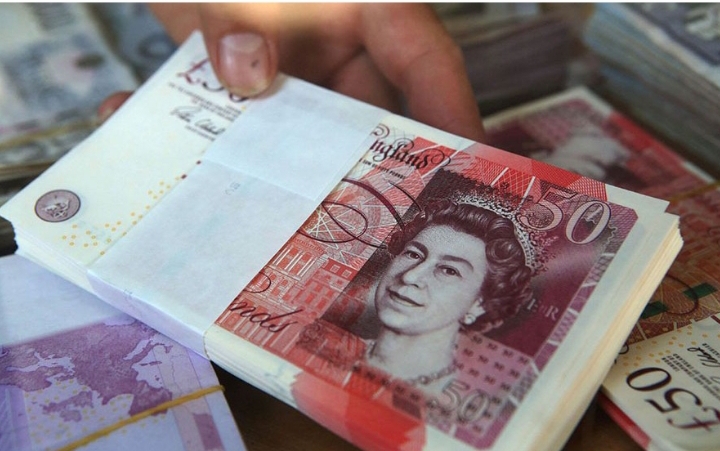The Bank of England and the Treasury have reacted to the fall of the pounds against the dollar.
The Bank said it would “not hesitate” to hike interest rates to curb inflation at its November meeting.
Meanwhile, the Treasury said it would set out plans to cut debt and publish economic forecasts in November.
The pound fell again after the two statements and some UK lenders said they were halting new mortgage deals.
Halifax, the UK’s largest mortgage lender, said it would temporarily withdraw all mortgage products that come with a fee in response to the volatility.
Virgin Money and Skipton Building Society have also halted offering mortgage products to new customers.
“As a result of significant changes in the cost of funding, we’re making some changes to our product range,” Halifax, which is part of the Lloyds Banking Group, said.
Sterling fell close to an all-time low earlier against the US dollar after Chancellor Kwasi Kwarteng said he planned further tax cuts, but started to recover during the day.
The pound had been sliding as global markets reacted to the sharp increase in government borrowing required to fund the biggest tax cuts in 50 years outlined in Friday’s mini-budget.
Some economists had predicted the Bank of England was going to call an emergency meeting in the coming days to raise interest rates in a bid to stem the fall, as well as calming rising prices.
A weak pound makes it more expensive to buy imported goods and risks pushing up the rising cost of living even further. Imports of commodities priced in dollars, including oil and gas, are also more expensive.
The Bank of England said it was “monitoring developments in financial markets very closely”, but said it would “make a full assessment at its next scheduled meeting of the impact on demand and inflation from the government’s announcements, and the fall in sterling”.
In an attempt to calm markets, the government said its financial plan on 23 November will have full growth and borrowing forecasts from independent forecaster the Office for Budget Responsibility.
It also pledged to set out further details on the government’s fiscal rules, including how it will try to decrease debt.
A late afternoon double dose of attempted reassurance – firstly from the Treasury, and then from the Bank of England.
What’s new from the Treasury is a timeline with dates attached. There will be a series of statements from various cabinet ministers about ideas we heard about on Friday.
And then in just under two months, a parliamentary moment. What’s being described as the “Medium Term Fiscal Plan” – and the Office for Budget Responsibility’s number crunching.
In short, what the Treasury is attempting to say is this: don’t panic, we know what we’re doing.
Well, let’s see what the markets do next.
If the Bank does announce a further interest rate rise on Thursday 3 November, it would be the eighth in a row.
Financial markets are currently expecting rates to hit 5.8% by April next year, up from 2.25% currently.
© BBC






